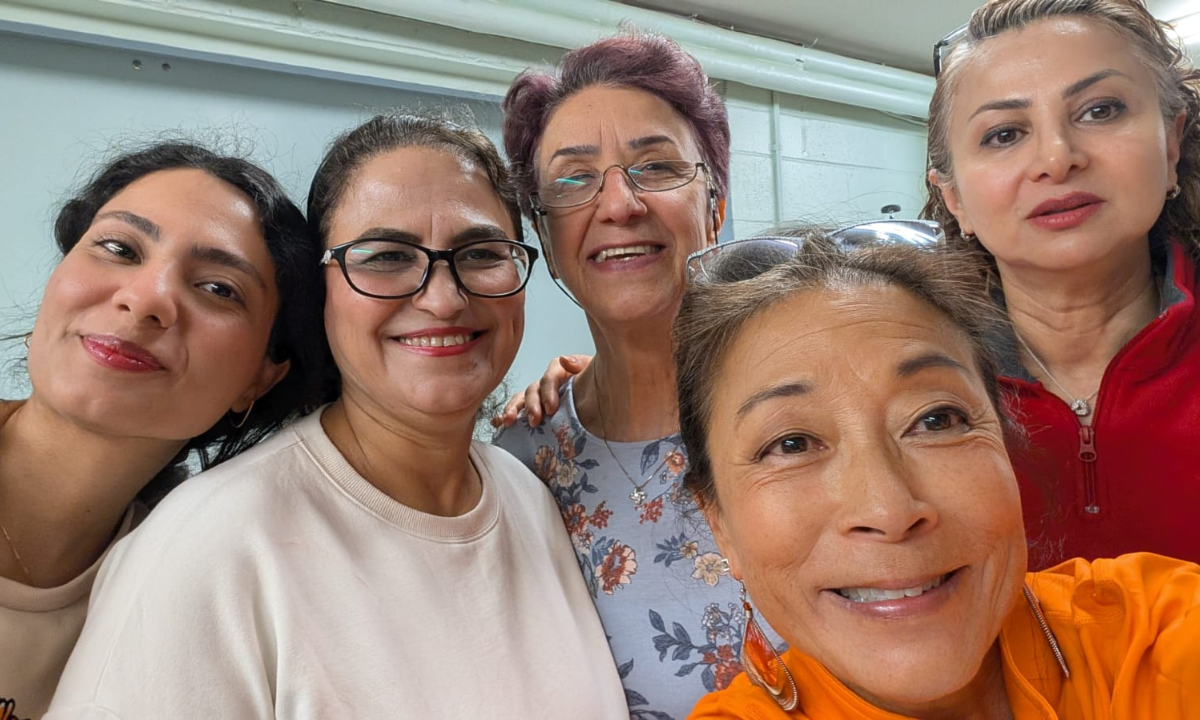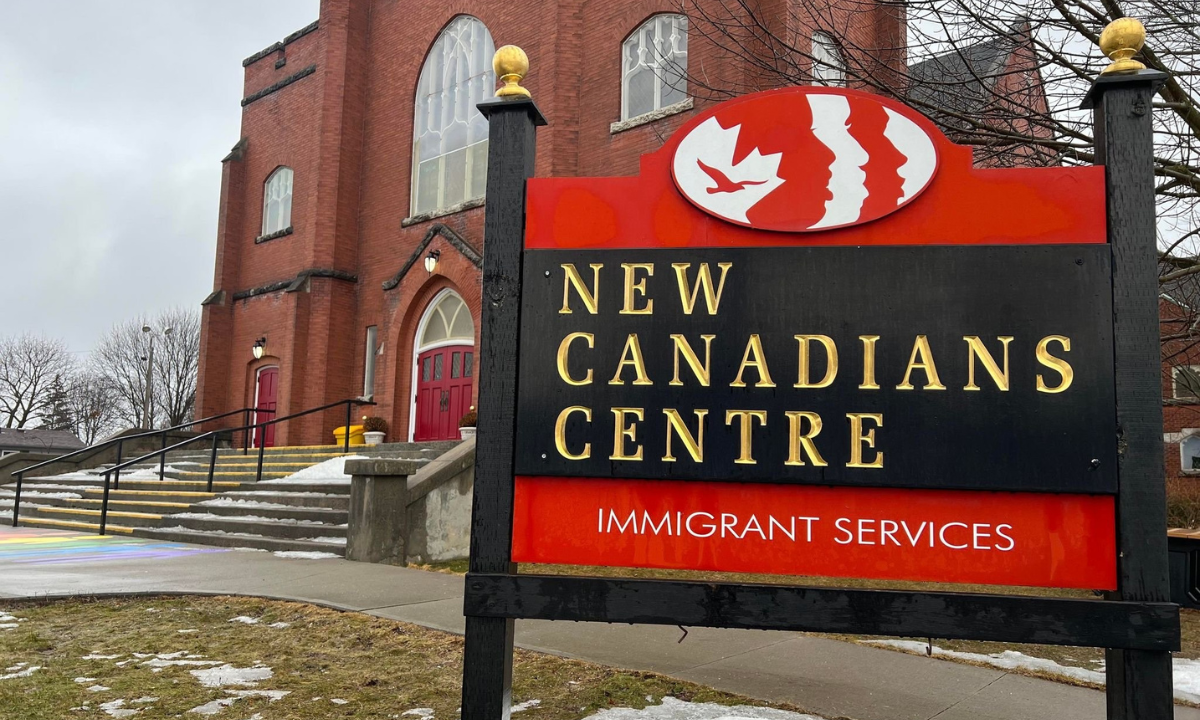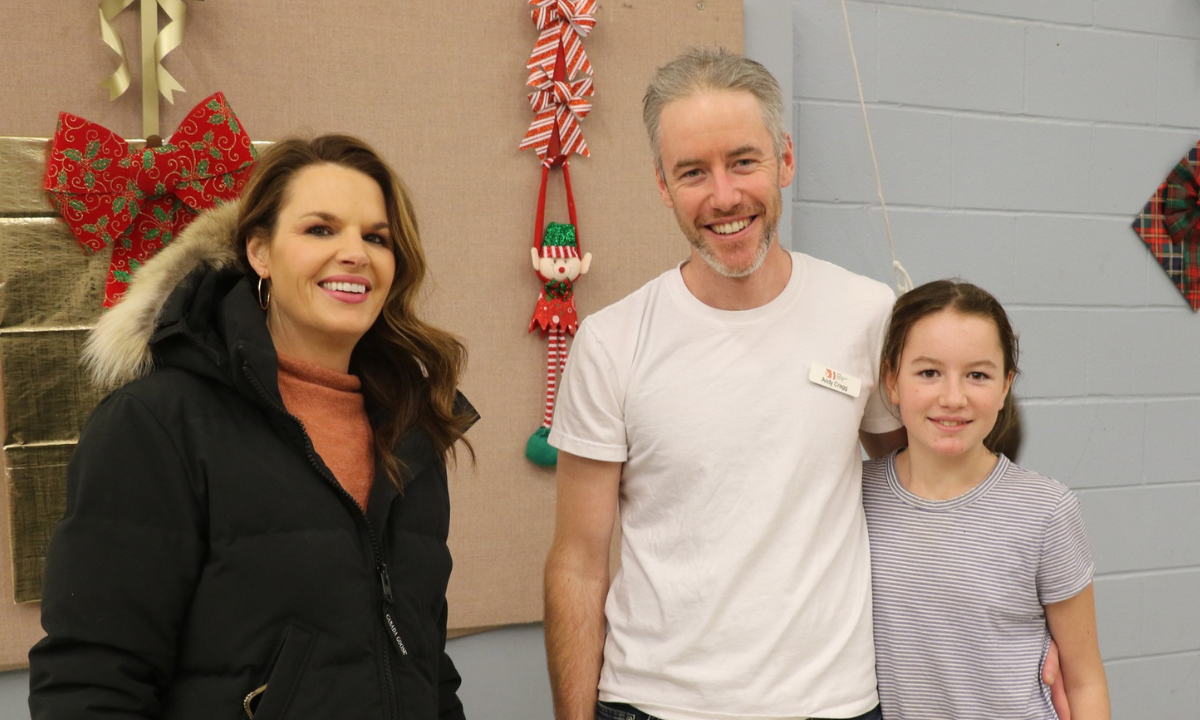A different kind of diversity: Peterborough immigration centre’s response to quadrupled clientele
Why It Matters
With immigrants being blamed for everything from a lack of affordable housing to stretched health care, Canada’s once wide-open policies have become more restrictive. Add in escalating Canada-U.S. tensions, and government funding is no longer guaranteed.

An immigrant support centre in southern Ontario says it’s trying to diversify quickly after its client numbers nearly quadrupled over the past ten years.
Peterborough’s New Canadians Centre (NCC) has grown to expand to meet the needs of refugees from Syria, Afghanistan and Ukraine, record high levels of immigration and a local community that wants to do more to help and learn about newcomer experiences.
“[Receiving funding through the Resettlement Assistance Program in 2015] was a major moment of growth for us,” said Executive Director Andy Cragg.
“There was the galvanizing of community interest. … The community wanted to step up.”
According to statistics in its annual reports, the yearly intake of clients has grown from 578 to 2,082. Staffing numbers, which Cragg said hovered around 20 before the program’s launch, are up to more than 50, and nearly 200 volunteers a year help NCC provide programming.
Meanwhile, its community development team expanded to offer a range of community connection programs and public education. Its living library program, in which newcomers learn to develop and tell their stories, gets more than 30 public engagements a year.
“Amplifying newcomer voices is the key thread to our work,” said Bhisham Ramoutar, the NCC’s community development manager.

But while NCC changed in that time, so too did the immigration landscape, especially over the past year.
The Liberal government performed a sharp about-face on its sunny ways and the promise of welcoming refugees and newcomers, telling them they were in fact not so welcome.
International students and temporary residents were scapegoated for housing shortages and overstretched health-care services, while Conservative party leader Pierre Poilievre said he would make large cuts to government funding if elected.
In October, an Environics Institute poll reported 58 per cent of Canadians say there is too much immigration, an increase of 14 percentage points from 2023.
Wanting to ensure their strong position continues in the future, the organization began diversifying its revenue streams.
In January, the NCC revived the position of Director of Fundraising and Communications and hired Darcy Bonner to fill the role.
“We have a really strong foundation to build on, but we need to make plans for a challenging future,” Bonner said.
“It is scary out there. Canadians have been supportive of multiculturalism for more than 50 years. But we’re holding the line. I am going to keep my elbows out and defend what we’re doing.”
About 80 per cent of NCC’s funding comes from IRCC. While Cragg said getting that ratio down will always be “really difficult” given the nature of NCC’s work – he said IRCC continues increasing its funding to them each year – diversifying income streams is central to why they’ve established the director role.
The goal is to double the money raised for NCC through donations, the organization’s second-largest source of revenue, over the next five years. Cragg said the organization is in a much better position to be resilient to challenges it may face and he’s focused on continuing to grow and on taking advantage of new opportunities.
“We don’t have to assume things are worse than they actually are, or normalize and validate the view that Canada is now anti-immigrant,” said Cragg.
“I think it is really important we have an organizational culture of possibility and abundance and not one of scarcity … that can feed a culture of desperation.”
Estate planning is one area of focus for the new fundraising chief. For boomers who have a lot of money, legacy giving is increasinly front of mind. That could be continuing donations or leaving something big when they pass away. NCC will work with donors to make sure that’s on their terms.

Over the years, the team said they have fostered relationships crucial to fundraising through community development.
“NCC is very intentional about its relationships,” said Ramoutar. “We are genuinely interested in learning what drives supporters, what guides them. Our fundraising is really guided by stories. We are storytellers.”
The power of storytelling should never be underestimated, he added
Despite the focus on new revenue sources, community development will have its own role in generating revenue, said Ramoutar.
Demand drove the growth in NCC’s community programming, which includes community training and public education workshops on a fee-for-service model, with a sliding scale based on what agencies can afford.
“More people are coming and wanting to learn more.”
As NCC ramps up its diversification strategies, Cragg emphasized the importance of filtering out the noise and focusing on what they can control.
“Let’s not panic.”
As if to underscore Ramoutar’s point about storytelling, Canada’s national narrative has evolved dramatically in recent months — even in the course of this reporting — from a nation divided over immigration to one rallying around its national identity, including its multiculturalism, in response to threats from south of the border.
Poilievre is no longer assumed to be a leader in waiting since Mark Carney’s ascent to Liberal Leader and Prime Minister.
“We come from a place of stories, of real narratives about what is going on, of connecting with the real world,” Ramoutar said. “You have to be optimistic if you choose to work in this field, our clients deserve this.”
“The sector is driven by numbers and targets. Equally important are real-world narratives, hearing how accessing services affects people,” he added.
“I always advocate for being intentional about providing spaces where people can story their life. It is a mechanism you can use to grow.”
